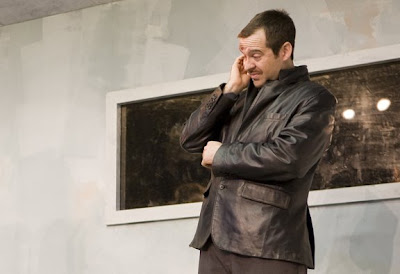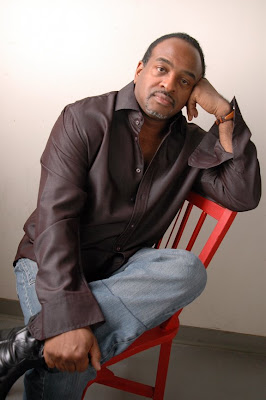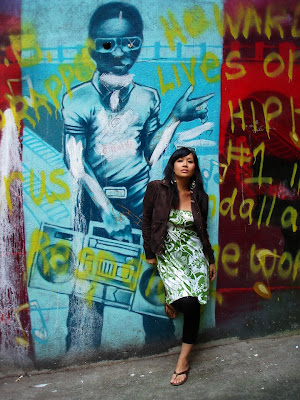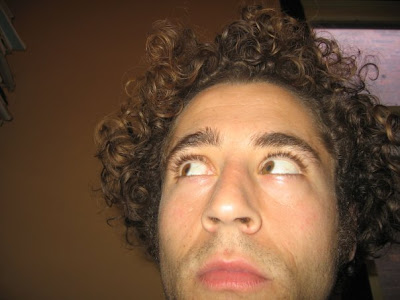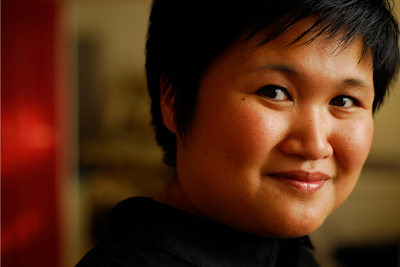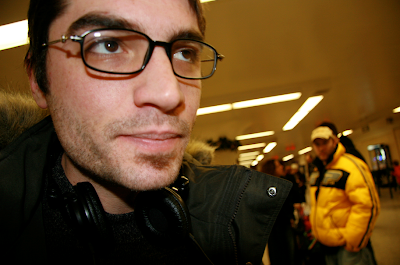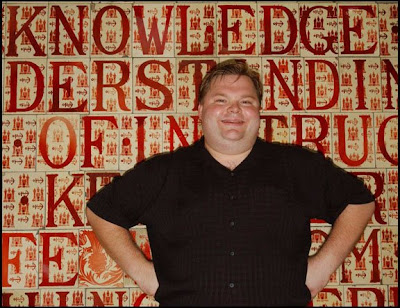 Mike Daisey
Mike DaiseyThe wheels of time grind inexorably forward; our culture intensifies and multiplies, growing more complex as it fragments, while the corporatization of all things is the clear watchword of the age. We say what we say faster and make connections more quickly, but the time to make the leaps is the same – we’re running out of bandwidth, in the dark fiber infrastructure of our collective minds. We live in an age of empire in a time when even the idea of empire is becoming anachronistic, a time of vast injustice that differs from all the other ages of vast injustice only in the new skill with which we mechanize the injustice. We live in a time when it is easy to be faceless, almost required to be egoless against the great crush of people, but where surveillance is clearly growing to be a way of life. Also here is faith, love, honor, loyalty, friendship—the best elements human beings have to offer, still blossoming and blooming against the grain. It is a very interesting time.
There are no rules to comic acting, obviously timing is everything, but sometimes the opposite is funny and sometimes the obvious is funny. But truth is important, and humans are flawed, imperfect creatures and the good comic actor gets that. So there I said there are no rules and then went on to say a bunch of ’em – that’s funny!
3) How well are Black Canadians being served by and represented in contemporary Canadian theatre?
That’s a huge question? Should Canadians of African descent and their stories have to wait ’til Black History Month to be seen on Canadian stages? Should they only be seen in their theatres? Should any group that is considered diverse only be seen as a marginal entity?
Black Theatre Workshop, and myself by association, looks to making BTW and the work that we do as open and inclusive as we now see so-called ethnic food . . . another choice on a wide menu. This doesn’t mean that we filter or water down our content for accessibility. On the contrary, we go full tilt and invite anyone that wants to be challenged to come along.
Are we served? I would like to see more of us and our stories on the so-called mainstream stages. I would like to see other cultures coming to see our stories on our stages . . . lots is being done, but there is always more to be done.
4) How connected do you feel to Filipino narrative traditions?
I feel deeply connected and enthusiastic about the new narrative traditions emerging from young Filipino-Canadian and Filipino-American artists today. As the offspring of a post-colonial society, and what my sister, Caroline, has labeled the “first post-modern culture”, modern Filipinos bear no identity outside of a colonized one.
Hundreds and hundreds of years of colonization by the Spanish, the Chinese, the Japanese and the Americans erased the Philippine Islands’ rich history of tribal traditions which have only recently re-surfaced through anthropological studies. These traditions have been embraced and re-interpreted by a new generation of young Filipino artists in North America eager to piece together a history and a culture they can truly and proudly call their own.
Examples of this at work are local Filipino-Canadian filmmakers’ The Digital Sweatshop’s film Ang Pamana: The Inheritance, which draws from age-old Filipino mythological creatures set within a modern-day Filipino-Canadian context; another local Filipino artist, accessories designer Melissa Clemente calls her designs an “interpretation of folk dance costume focusing on art forms from the mountain regions of the Philippines.” Len Cervantes, a spoken word artist, borrows from ancient Filipino poetic forms such as balagtasan (a form of debate and verse) and tanaga (a set rhyme and syllabic scheme) in his work.
For more information on Filipino-Canadian artists doing their thing, see the Kapisanan Philippine Centre for Arts + Culture, a local youth-centred facililty that provides a space for young Filipino-Canadians to explore their identity and roots through the lens of arts and culture.
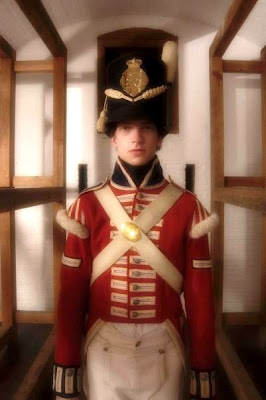 Cole J. Alvis
Cole J. Alvis
It was relatively easy for me as a gay man to escape to Toronto and find an accepting populace within the theatre community. But something that pricks my conscience every so often is how little I’m doing for the next generation of queer individuals growing up in the village of Duchess, AB – population 978.
I’m in talks, presently, with Buddies in Bad Times Producer Jim LeFrancois about a project he’s coined Reaching Out To Rural Canada, wherein a troupe of queer artists with a camera leave the comfort zone of inner-city TO and assess how to connect with communities outside of our diverse urban centre.
6) What is your case for optimism?
I’m not optimistic. I think we’re in terrible times and it’s only going to get worse.
7) What quality do you most dislike when you see it in other artists?
Laziness of thought and unearned ego. That’s two. If you’re going to have ego, you better well deserve it. There are a handful of very opinionated artists in this community who are producing some of the most unintelligible, thoughtless dreck imaginable. I mean, really, do we need to be producing plays about porno? Really?
I had somebody once actually pitch their production of Julius Caesar to me by telling me about the fight scenes and how life-like and amazing they were. Um. So, that’s what’s important about Caesar? The fights? Please. I’d rather see a bad play that is actually trying to communicate something interesting than a good production of a play without a soul.
Also, there are a series of brilliant people who are creating lazy art because they can. Because we will reward that art despite its weaknesses . . . and so, instead of these people actually trying to say anything, they say half-a-thing and collect the rewards anyways. This too also upsets me.
What is the intent of the work? Why are you writing this? Why are we doing this? If the answer is “to be awesome” or “to get attention” or “because I’m the best” or “because I’ve tricked everyone into thinking this is about anything” then there’s a problem. Unless you’re 14 or 15 years old. Then, it is absolutely appropriate to write about how awesome “fucking chicks” is . . . and even then . . .
 James Cade
James Cade9) How do you feel about the quality of theatre criticism in Toronto?
I don’t read reviews.
10) What’s one of your fondest memories from your time as an actor at the Stratford Shakespeare Festival?
I was doing As You Like It, which was an amazing experience on its own as I was the guitar player for the music which was written by the Barenaked Ladies. And say what you will about the band but they are a bunch of blue-collar dudes that are just happy to be where they are. An example: We were at a media release party and I was interviewed numerous times answering the most asinine questions possible like, “what kind of underwear do you wear?”, etc. I couldn’t help the bewilderment. I went up to Jim Creeggan, who is the bass player for the band, and asked him how he put up with it, and he had the most fantastic answer: “If we put up with this for an hour or so a week, we get to make music for a living.” Jesus, that put things into perspective.
Well anyway, I was also the understudy for Touchstone for that production. So one student matinée just before Dan Chameroy (he was playing Amiens, the singer) and I were about to go on for our first song, Nora Polley, the stage manager, leaned in and said “Stephen Ouimette is losing his voice, you’re probably going to be on for act two.”
So for Touchstone all the fun bits are in Shakespeare’s act three and on. I mean I was operating in understudy mode: “just get through it, keep the show going,” but it was exhilarating. It was an amazing feeling.
The show ended, and although I had done a bit of fake-speare throughout, forgetting this line here of there, it was very fun. Curtain call came, and this is the dream quality of it . . . when I came running out onto that magnificent Festival Stage and 900 kids stood up to clap I nearly fell over.
